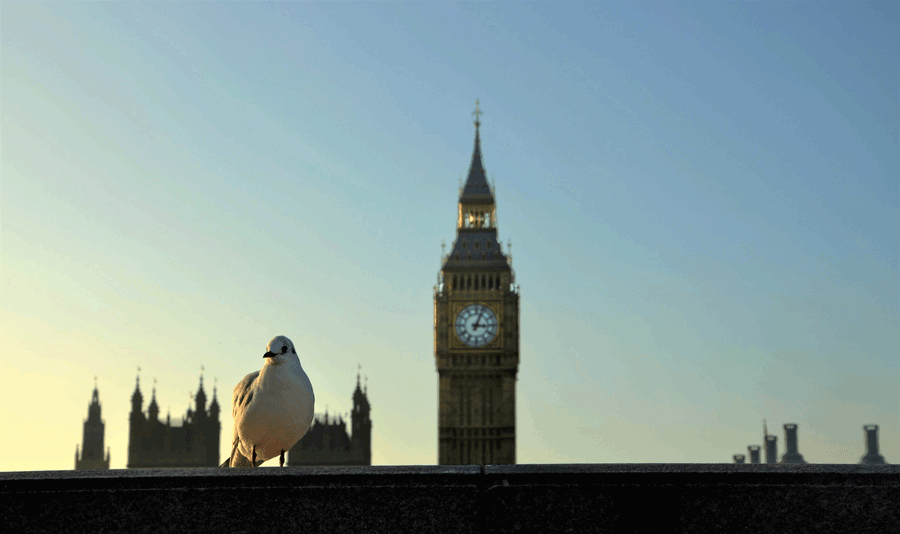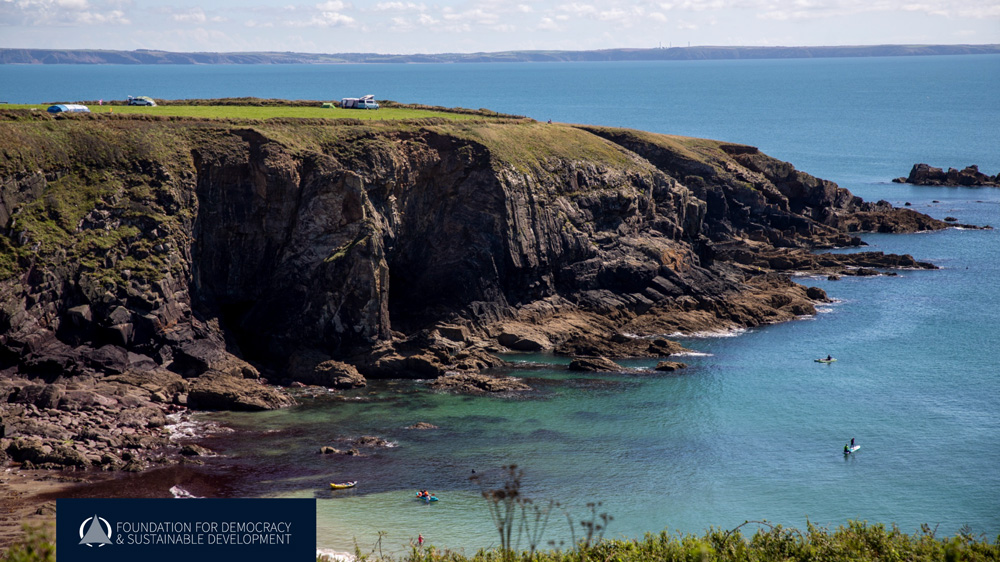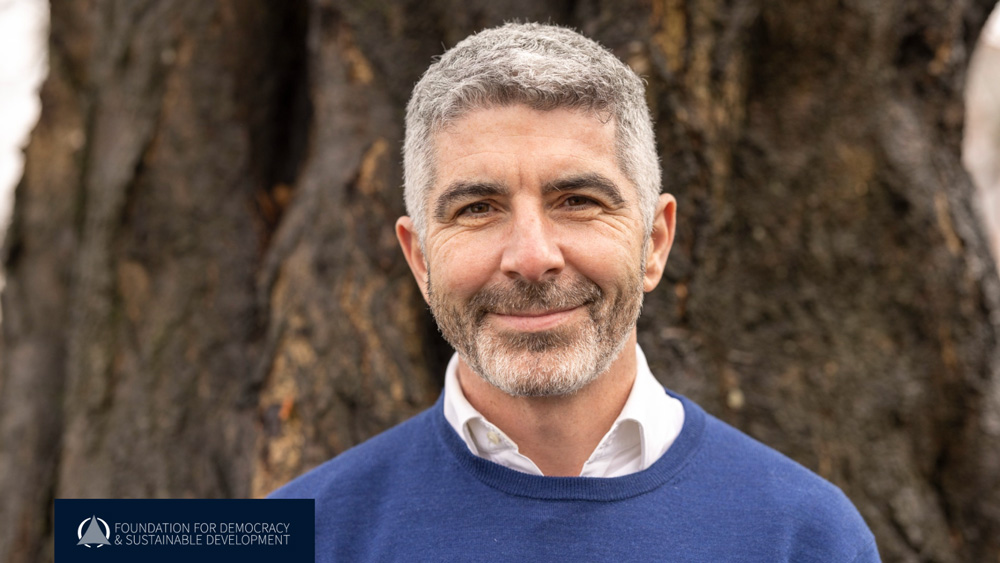Simon Burall is the Director of Involve, a think tank and charity specialising in public participation. Their mission is to inspire, innovate and embed effective citizen engagement, to enable members of the public to take and influence the decisions that affect their lives.
Simon’s guest blog has also been published on this website as a FDSD Provocation.
The UN’s Climate Conference in December 2015 achieved a much tougher negotiated agreement than many were expecting, including the first set of commitments by all countries to reduce carbon emissions.
The agreement, hard as it was to achieve, was the easy bit. Moving from commitment to action will be much harder. The reason for this is because we don’t have adequate mechanisms for surfacing the types of debates we need to resolve the tensions and trade-offs that emerge as soon as decisions about carbon reduction are anywhere near the table.
In part this problem is because, as I highlight in our recent publication Room for a View, we don’t have adequate mechanisms for any area of public policy. But it is also a particular feature of the problem that climate change presents.
Climate change is one of a class of public policy problems, which includes genetic modification and a number of other highly technical innovations, where the public debate is almost exclusively framed in scientific terms. In the case of climate change, the public debate largely revolves around the evidence generated from a myriad of scientific disciplines. The evidence generated by, for example, meteorology, hydrology, the physics of the sun. are reviewed in the reports of the Intergovernmental Panel on Climate Change (IPCC) and provide the best estimate of the extent and impact of changes to the earth’s climate as a result of CO2 emissions.
One thing that climate change has in common with many public policy debates is that the policy options are significantly informed by, and often dictated by, a different science ‒ economics.
Both economics and climate science are important elements of the debate about how to mitigate climate change and adapt to its impacts. In this post, however, I want to argue that they have undue precedence. I believe that we will be unable to take the comprehensive action needed to remove carbon from our economy unless we also draw on other sources of evidence.
Tensions and trade-offs
One of the most important reasons for this need to consider other views, is that the decision to decarbonise the economy raises a series of tensions and trade-offs which come in different forms. Three important, but by no means comprehensive, examples, are trade-offs between: different communities and groups; investment and mitigation; and various visions for the future.
- Different communities and groups
The debates about the siting of wind farms, for example, highlight the problem that some communities are more likely to be affected by carbon reduction strategies than others. Merely stating the evidence that a particular technology ‒ wind, nuclear or shale gas, for example ‒ is the most technologically and economically efficient mechanism for reducing carbon does not begin to take into account the different perspectives that people will have about the value of their local landscape, the industrial history of their area or the potential income for their family.

A boy plays basketball in front of an fracking well that is covered with large colorful flowers. (CC BY-NC-ND 2.0) Faces of Fracking / Flickr
Take fracking, as another example, and a particularly live political issue. The national debate is almost exclusively framed in scientific terms around the risk of groundwater contamination, and the extent to which the gas extracted will contribute to carbon reduction targets. It takes no account of, for example, the affected communities’ perspectives about potential increases in noise or changes to the visual landscape. Notwithstanding the on-going debates about the safety and efficacy of fracking, how should these possible localised dis-benefits be balanced against any potential wider benefits to society?
Finally, any serious attempt to decarbonise the economy will see the costs of carbon-based energy rise. During this transition, the overall costs of energy are likely to increase, particularly as the new technologies required to produce renewable energy are likely to be more expensive during their early stages. The relative impact of these costs are likely to be higher for poorer families and communities than for society as a whole.
All three of these examples highlight that there is no right or wrong answer. Any course of action, as with any policy decision, will create winners and losers. Buried within these losses and gains are very different perspectives on what is valuable ‒ for example, the value of a particular landscape, versus the value of someone’s livelihood.
- Investment in mitigation or adaptation
Public resources are constrained. Investment in technology for climate change mitigation, funding insulation to reduce energy use by poorer families, or the cost of relief for industries in energy transition, for example, will reduce funding for other public policy choices, including adaptation.
The devastating impact of the UK floods, over December 2015 and into January 2016, demonstrate the challenges any government will face if emerging crises suggest that it has not prioritised adaptation. And yet there is no serious debate about the choices our society needs to make between mitigation and adaptation. Given that the adaptation budget itself is finite (and small compared to the problem) where is the debate about how to prioritise this kind of spending?
- Visions of the future
We aren’t part way down a pre-determined path towards a better future. The choices we make now will determine the future that we and our children will live in. A significant, and hidden, debate at the heart of the climate change challenge is about different visions of a better world. It encompasses the whole of public policy from the best way to produce our energy, distributed and community owned, or centralised and by financially profitable companies, to the extent to which we should live with nature and ‘rewild’ our ecosystems, or reshape nature to support the way we live now.
Changing how government works and listens
Climate science and economic modelling are presented as the sole frames for the debate about both the problem and the solution. However, the three examples above demonstrate that they are just the starting point for a much deeper set of debates that need space and time to be aired and feed into policy debate.
The solution is not to ditch either climate science or economics. Both provide critical boundaries for the debate. Just as there is a finite amount of carbon we can pump into the atmosphere before life on earth becomes unsustainable, there isn’t an unlimited supply of money available to solve the problems we have created for ourselves and our children.
Climate science and economics provide boundaries for our policy decisions, but don’t define them. It’s a bit like triangulating the position of a boat in the open ocean. Signals from only a couple of transponders can provide certainty about the area of the sea in which the boat is in, but they aren’t enough to define its absolute position. (I am shamelessly stealing a metaphor I first heard from Andy Stirling of SPRU, who also used it much more elegantly.)
A key challenge in our fight to stabilise the earth’s temperature is how to surface these necessary, alternative debates, viewpoints and perspectives. More than this, we need to find ways to do so in ways that policy makers can hear, understand and act on in a timely fashion.
Fundamentally, this will require the business of government to be pursued in a very different way. It means that politicians and civil servants will have to be much more open to alternative perspectives and ways of seeing the world. They will need to become more facilitative in the way they work. They will also need to move away from the model that sees them attempt to lead from the front, like heroes of old. Instead, they need to create time and space for alternative perspectives and views to be expressed and interact.
More than this, they need to understand that the public are already having the kinds of debates I identify above. Parliament and Whitehall will have to find new ways to tap into existing networks and spaces, and join these conversations as equals (as opposed to assuming a position of power and extracting what is needed and moving on). And they will also have to recognise that communities and individuals bring many assets that can help provide parts of the solution, but only if built on a relationship of greater equality.
Government will need to stick with policy questions for far longer than it does currently in order to build the trusting relationships necessary for networked and asset-based approaches. Paradoxically, given the urgency of the climate challenge, government will need to slow down and do less if it is to truly surface, engage with, and act on, the multitude of perspectives, views and assets that lie in our communities.
Government needs above all to shift perspective from a reliance on highly technical evidence, to one that recognises other forms of evidence and gives them equal weight to that of climate science and economics.





